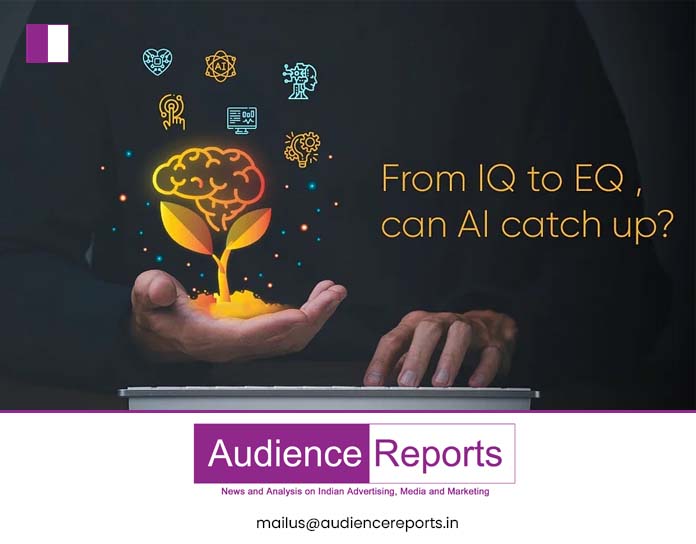If artificial intelligence can create killer business strategies, what do we need humans for, asks our guest author.
Have you ever heard of a business strategy that was created solely using brains? Well, I haven’t. As a marketer, I always put my ‘heart and soul’ into everything I do. The ‘brain’ is important, but not the sole driving force. After all, a successful strategy needs passion, creativity and an emotional connection with the audience.
If artificial intelligence (AI) can create killer business strategies, what do we need humans for? Sure, these machines can be programmed and trained really well, but what about human emotions and intuition? Can a machine understand what is going on in the consumer’s mind? What are their sentiments? What is happening around the world? And, how humans are reacting to those situations.
Today, you open the Internet, and names like ChatGPT, Bard AI and Bing AI are spreading like wildfire. Certainly, AI has great potential and one can leverage such tools to accelerate their business. But as of today, no AI tool can match emotional intelligence.
With AI, computers may become smarter than humans. But they will never be able to match the passion, feelings and the human touch that we bring to our creations.

Having said that, if I were to write this article using a tool like ChatGPT, would it accurately convey my emotions and personal view on the topic? How I actually perceive such technological innovations and the downsides of such tools?
AI tools draw data from the Internet and, today, a single search query on Google, yields thousands of results. If we rely solely on these results, a minor headache could be misconstrued as a malignant brain tumour. The point here is that the data fed to these tools, is humungous and often unreliable.
And when it comes to your business, what about your brand tone, your customer sentiment and your brand’s values? And, more importantly, ‘security’?
Samsung recently conducted a survey to gauge the use of AI tools within the organisation. 65% of the respondents said that using such services, carries a security risk. They also banned the use of AI tools such as ChatGPT, Google Bard or Bing, among its employees which, in my opinion, is a carefully considered strategic measure to safeguard their data. Moreover, this move can be viewed as a contribution towards preserving civilisation.
Elon Musk’s assertion that AI poses the greatest existential threat to humanity, resonates with me. However, I do believe that this threat can be mitigated if humans take charge of the situation. AI is incredible, but businesses need to know how to use it wisely, ethically and, most importantly, responsibly so that we ourselves don’t become a threat to human civilisation.
Recently, Geoffrey Hinton, who is also known as the ‘Godfather of AI’, along with two other employees, quit Google. His immediate concern, is the spread of misinformation and, in the longer run, the threat to human existence.
He warned that AI will eliminate jobs (which has already started) and possibly humanity itself, as it begins to write and run its own code. Hailing directly from the generators of AI, this highlights the gravity of the situation.
It is alarming for us to take a pause and contemplate where we are taking the technology that can be a useful assistant, but let it not become our masters.
AI is a beautiful innovation by humans, but it lacks human emotions. This is precisely how it is meant to be. Businesses must embrace AI and enjoy its benefits, but also be mindful of the potential risks it poses to society. The day is not far when technology will replace the role of humans.
While progress has been made in the field of AI, genuine human-like emotions remain, and will remain, a significant challenge. On the other hand, they will nail it while performing in front of large audiences because of lack of stage fright!





































